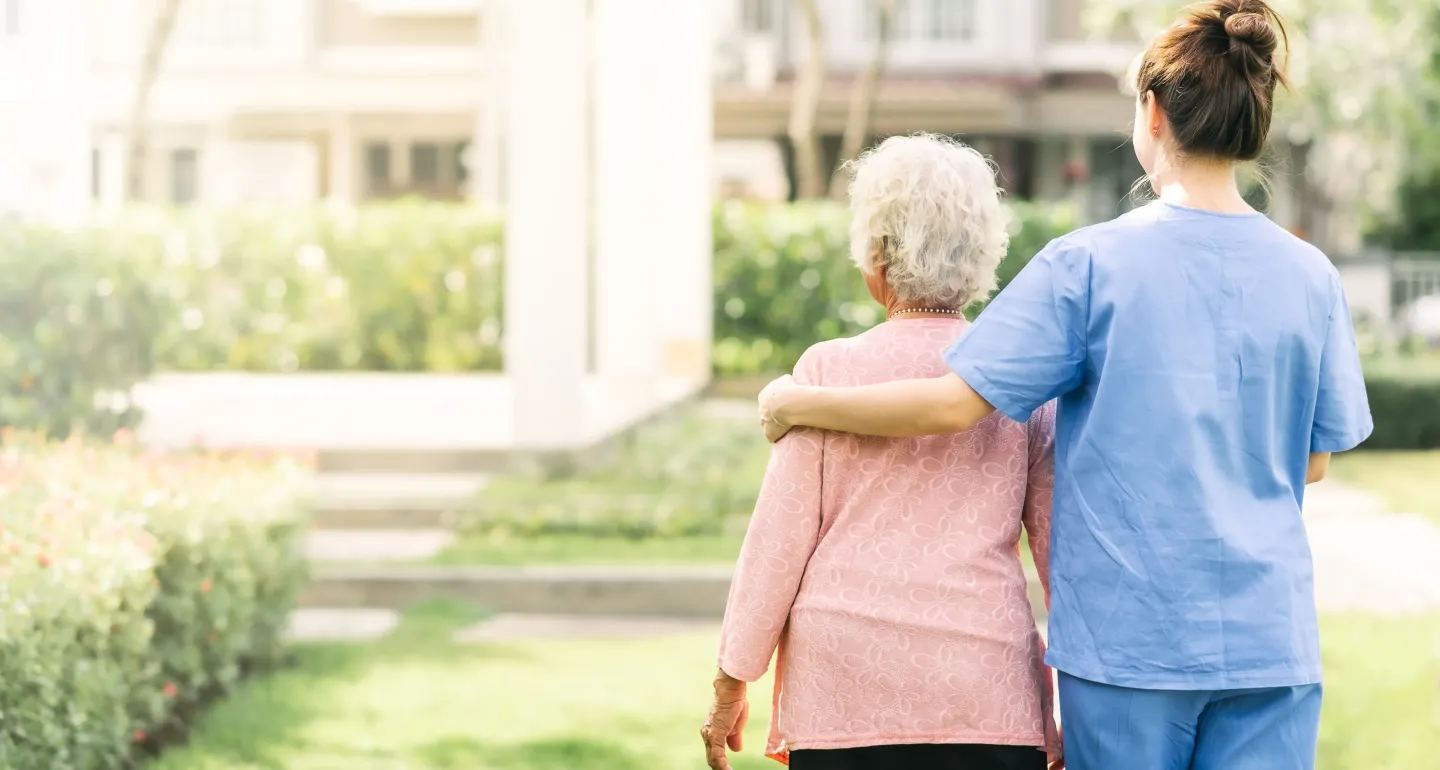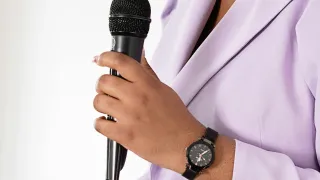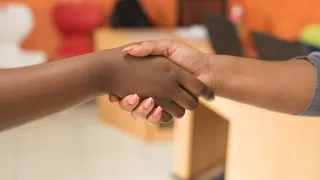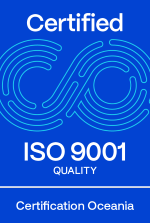Fabulous Faulkner making it her business to provide outstanding person-centred care
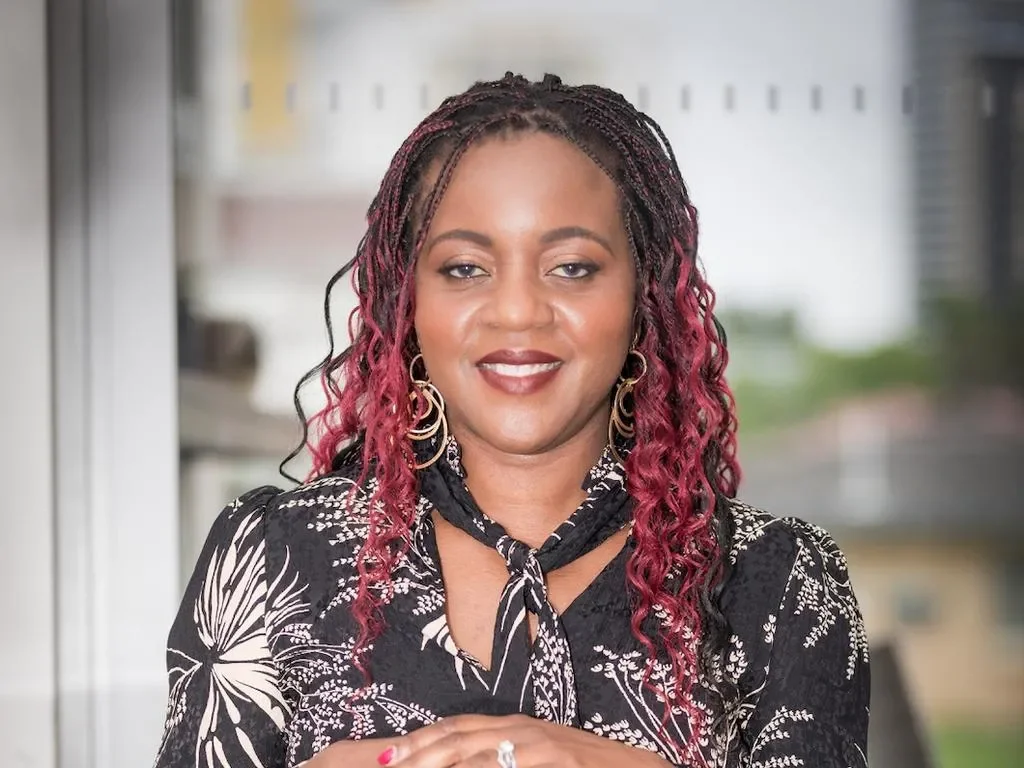
It was a near-death experience that inspired Queesland-based registered nurse Busi Faulkner to take the initiative in her career to truly make a difference to her community’s most vulnerable elders.
The proud Zimbabwean-Australian, who migrated to Australia in 2004 as a 24-year-old, enjoyed a successful nursing career across hospital and aged care settings for almost a decade.
Having worked hard in her career to this point, in 2013, as Faulkner began a period of maternity after the arrival of her second child, everything was called into question.
At only 33 years of age and ten days post-partum, Faulkner was seized by the most unfathomable pain.
The acute ordeal stretched on for more than 30 hours, with doctors eventually sending Faulkner home with painkillers without any further investigation into the source of pain.
When I was on my deathbed, I kept on thinking, ‘what have I done to contribute to the world? What have I done to make a difference, or to make change?’ “I could not pick one single thing.
Busi Faulkner
“But I couldn’t ignore it; I knew it was serious,” Faulkner says.
“So we drove to the Gold Coast for a second opinion.”
Her age belied the severity of her condition; Faulkner was suffering a heart attack, and was quickly rushed to intensive care.
Having lost both of her own parents at a young age, she was haunted by the prospect of history repeating itself, of not being there for her own children.
She also began to question the value of her own life and what she had achieved.
“When I was on my deathbed, I kept on thinking, ‘what have I done to contribute to the world? What have I done to make a difference, or to make change?’ “I could not pick one single thing,” Faulkner says.
Stepping into her care recipients’ shoes a wake up call
Faulkner thankfully pulled through, but the road to recovery was long and arduous.
“It was a life-changing experience, because it was such a sudden stop to my career, and now I was on the receiving end of care,” she recalls.
“I had a ten-day-old baby and a four-year-old, and I couldn’t walk; I couldn’t drive … I felt so ashamed.”
It was a life-changing experience, because it was such a sudden stop to my career, and now I was on the receiving end of care.
Busi Faulkner
Needing her husband to keep working to support their young family of four, the Faulkners began to experience, first-hand, the difficulty of finding adequate in-home care.
“It was very difficult for me to even get anyone to come out and look after me, and when people were coming to give me services, I noticed that people were not thinking outside the box, and they were not caring for me as an individual person,” Faulkner says.
“I was thinking, ‘how hard is it?’, just to go into someone’s house and make a difference.”
Access to nursing staff was so limited at times that the Faulkner family had to rely on unqualified, live-in au pairs to manage.
We had to get people from the UK who would live with us for six months, and that was the only way I could get someone to come out and help us.
Busi Faulkner
“We had to get people from the UK who would live with us for six months, and that was the only way I could get someone to come out and help us.
“I thought to myself, ‘Australia’s big and we don’t all live close to each other: how many other people are in this predicament?’”
The last straw for a budding entrepreneur
Attempting to get back to work after a year of rehabilitation, Faulkner was met with nothing but discouragement.
“No one wanted to take me back at work” she recalls.
“They didn’t give me a single opportunity.
“I got upset and thought ‘I can’t believe you’ve written me off; I’ve still got my brain.”
We need to bring the soul back into looking after people, and I realised the only way to do it is to lead by example. So that’s when I started Home Care Nurses.
Busi Faulkner
Though her skill set may have been undervalued by her previous employer, Faulkner used this rejection as the fuel to propel forward a new, independent venture.
“We need to bring the soul back into looking after people, and I realised the only way to do it is to lead by example,” Falkner says.
“So that’s when I started Home Care Nurses.”
Home Care Nurses Australia (HCNA), of which Faulkner is now working as managing director, is a home-care service provider delivering a range of personal care services to older Queenslanders, as well as people with disabilities of any age.
Having now been in operation for eight years, HCNA employs 300 staff across the state, providing services ranging from basic companionship all the way up to end-of-life support— and everything in between.
“I realised there were a lot of clients out there that people deem ‘too complex’ …they may have high care needs, or speak a different language or have particular preferences with food,” Faulkner says.
“It’s not hard to fall into the ‘too hard basket’, but I thought ,’how about we accommodate that?’
Person-centred care has become the guiding ethos for Faulkner’s service provision— and often it’s the simplest things that make the biggest difference to elders’ wellbeing and sense of agency.
I realised there were a lot of clients out there that people deem ‘too complex’ …they may have high care needs, or speak a different language or have particular preferences with food. It’s not hard to fall into the ‘too hard basket’, but I thought ,’how about we accommodate that?’
Busi Faulkner
“If an older person wants an appointment at a certain time, the industry couldn’t really provide that; they’d tell you when they are turning up.
“But our priority is that you tell us what you prefer.
“The usual example is that people assume everyone has a shower in the morning, but some people prefer to have them in the night-time.
“Just having that flexibility and accommodating that makes a huge difference, and we’ve found a lot of older people responding well to that.”
Faulkner keeps carers and the older persons paired to ensure continuity of care is maintained.
“You’ve got that consistency and building relationships and understanding, and someone even understanding their food, learning how to prepare their food, and where to buy their food.
For older Australians who were born overseas and/or speak a different language— ie. are culturally and linguistically diverse (CALD) — a little extra effort from care providers and staff can go a long way in ensuring their overall wellbeing.
what we do is we try to understand who this [older] person was, what they used to do, and then we try to match them with a carer with some of the same interests, for example someone who is well-travelled, just so they have that starting point.
Busi Faulkner
“This is paramount in delivering a holistic service,” she says.
In order to care for clients with dementia, Faulkner emphasises that it is vital to employ staff who speak a variety of languages.
“People in their older age often regress to their first language and as Australia becomes more multicultural, this is more commonly not English,” she notes.
“Sometimes you can’t find the same race, but, as you know, the world is small now: so many of us travel, go to different places, we learn about different cultures.
“So what we do is we try to understand who this [older] person was, what they used to do, and then we try to match them with a carer with some of the same interests, for example someone who is well-travelled, just so they have that starting point.”
The HCNA team have encountered times where they have no available staff who can speak a language.
But, in instances of lower care needs, staff initiative has been going a long way.
Charis Berden and Divina Tumanda, two HCNA care workers, have been learning a new language to improve their care capabilities for a long-term client.
“We have a Samoan lady, and two of my staff, both from the Philippines, went out of their way to learn the basics of the Samoan language to help them communicate with her.
I’ve come to understand that if I want to make a big difference, I need more people involved. I can’t look after everybody myself.
Busi Faulkner
“That makes huge difference, and it has made a significant difference for this client.”
In Faulkner’s mind, a multicultural Australia is not only about the presence of diverse individuals, but of mutual curiosity and understanding.
“Diversity is no longer about colour; it’s about individuals embracing other people’s cultures,” she says.
A real need for government action
Faulkner is now looking to expand interstate, with Victoria and Western Australia looking to be the first prospecting off-shoots of the budding franchise.
“I’ve come to understand that if I want to make a big difference, I need more people involved.
“I can’t look after everybody myself.”
But it’s a precarious time to be expanding her business, with the workforce crisis deepening, migration rates stalling, and government budgets for in-home care shrinking in real terms.
“This workforce crisis is really bad, and at the moment it is worse than it was during COVID… Most employers and staff are on the verge of burnout.
“A bit of consistency between the government departments would be appreciated right now,” she says.
Faulkner has attempted to become an accredited sponsor for migrant workers, but she laments that the process is so onerous it deters many businesses from following through with the scheme.
“It’s so tedious; it would help is they could make the process a lot faster,” she says.
I was saying to my husband, every time you talk to children, they are talking about influencers; nobody talks about helping the aged care industry or making a difference, anymore… let’s bring those good stories… share those good stories about what it means to help someone.
Busi Faulkner
“I’ve actually applied on my own and got declined, and then I’ve got a migration lawyer to help me with the process.
“The information they are asking for… you’d think they’d be able to access everything through the Australian Tax Office and ASIC… It shouldn’t be that hard.”
“You’re juggling the business — I’m working from 4am to 10pm, and on top of that I have to compile all this stuff.
“I’m actually thinking of not doing it. I’m just thinking it’s too much time.”
However, Faulkner also sees the need for transformative social change to encourage a new generation of Australians to choose a career in aged care.
“I was saying to my husband, every time you talk to children, they are talking about influencers; nobody talks about helping the aged care industry or making a difference, anymore.
Younger kids have no idea, you tell them about aged care and they ask, ‘what do you do?’
“So let’s bring those good stories… share those good stories about what it means to help someone.”
All of us are going to die, but if we’re going to do it, let’s go out in style, and let’s ensure we respect each other till the day that someone goes.
Busi Faulkner
Despite the current challenges, Faulkner remains positive that a new age of quality care, available nation-wide, is just around the corner.
“My company came from the passion of trying to make a difference, and I really think there are still so many good people out there who really want to go in and make a difference in someone’s life.
“All of us are going to die, but if we’re going to do it, let’s go out in style, and let’s ensure we respect each other till the day that someone goes.”
View all news

